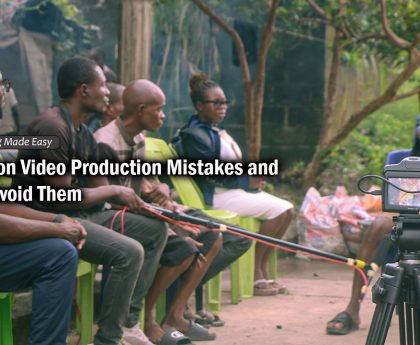
Video marketing has become an essential tool for businesses across various sectors. While the core principles remain consistent, different industries require unique approaches to maximize impact. Whether you’re in retail, healthcare, finance, or any other industry, effectively leveraging video can significantly enhance your brand presence, engage your audience, and drive conversions. Let’s explore how video marketing can be adapted for various fields:
Video Marketing for various Industries
1. Retail and E-commerce
For retail and e-commerce businesses, video marketing can make products come alive in ways that static images and text simply cannot. Demonstrating product features, showing items from multiple angles, and even showcasing customer testimonials through video can build trust and compel potential buyers to make a purchase. Live streaming of product launches or behind-the-scenes footage can also create excitement and a sense of exclusivity, driving engagement and sales.
2. Healthcare
Patient education videos are particularly valuable in healthcare. These can explain complex medical procedures, demonstrate proper use of medical devices, or provide lifestyle tips for managing chronic conditions. Virtual tours of healthcare facilities can help alleviate patient anxiety by familiarizing them with the environment before their visit.
3. Technology
In the fast-paced tech world, product launch videos need to be sleek and innovative to capture attention. Explainer videos breaking down complex technologies into simple terms can be very effective. Live streaming of tech events or product unveilings can create buzz and engagement.
4. Education and Training
In the education sector, video marketing has transformed the way knowledge is shared and acquired. Educational institutions can attract prospective students with campus tours, student testimonials, and highlights of academic programs. Online course providers can use video to offer previews of course content, instructor introductions, and testimonials from successful learners. For corporate training, videos can effectively deliver learning modules, safety protocols, and company policies in a visually engaging format.

5. Food and Beverage
Short, eye-catching recipe videos have become hugely popular on social media platforms. Restaurants can use videos to showcase their signature dishes being prepared, while beverage companies might create cocktail tutorial videos featuring their products.
6. Non-profits and Advocacy Groups
Non-profits and advocacy organizations can harness the emotional impact of video to raise awareness, drive donations, and mobilize supporters. Compelling storytelling through video can illustrate the impact of their work, showcase success stories, and highlight pressing issues. Campaign videos can rally supporters around a cause, while event coverage and behind-the-scenes footage can build transparency and trust with donors and volunteers alike.
7. Finance
The finance industry can use video to demystify complex products and services. Animated explainer videos can make topics like mortgage rates or investment strategies more accessible. Regular market update videos can position a company as a thought leader in the field.
8. Real Estate
Virtual property tours have become increasingly important, especially in the wake of the COVID-19 pandemic. These can include drone footage for aerial views of properties and neighbourhoods. Time-lapse videos showing home renovations can be effective for real estate investors or home improvement companies.
9. Hospitality and Travel
For hospitality and travel businesses, video marketing can transport potential customers to their desired destinations. Hotels and resorts can showcase their amenities, dining options, and local attractions through immersive video tours. Travel agencies can inspire wanderlust with destination guides, travel tips, and video testimonials from satisfied clients. Virtual reality (VR) and 360-degree videos can provide even more immersive experiences, helping travellers make informed decisions and book their next adventure.
In Conclusion
By tailoring video content to industry-specific needs and audience preferences, businesses can effectively engage viewers, build brand awareness, and drive conversions.
Remember, the key to successful video marketing in any industry is to provide value to the viewer, whether that’s through information, entertainment, or emotional connection. By understanding your audience’s needs and preferences, you can create video content that not only promotes your brand but also enriches your customers’ lives in some way.






